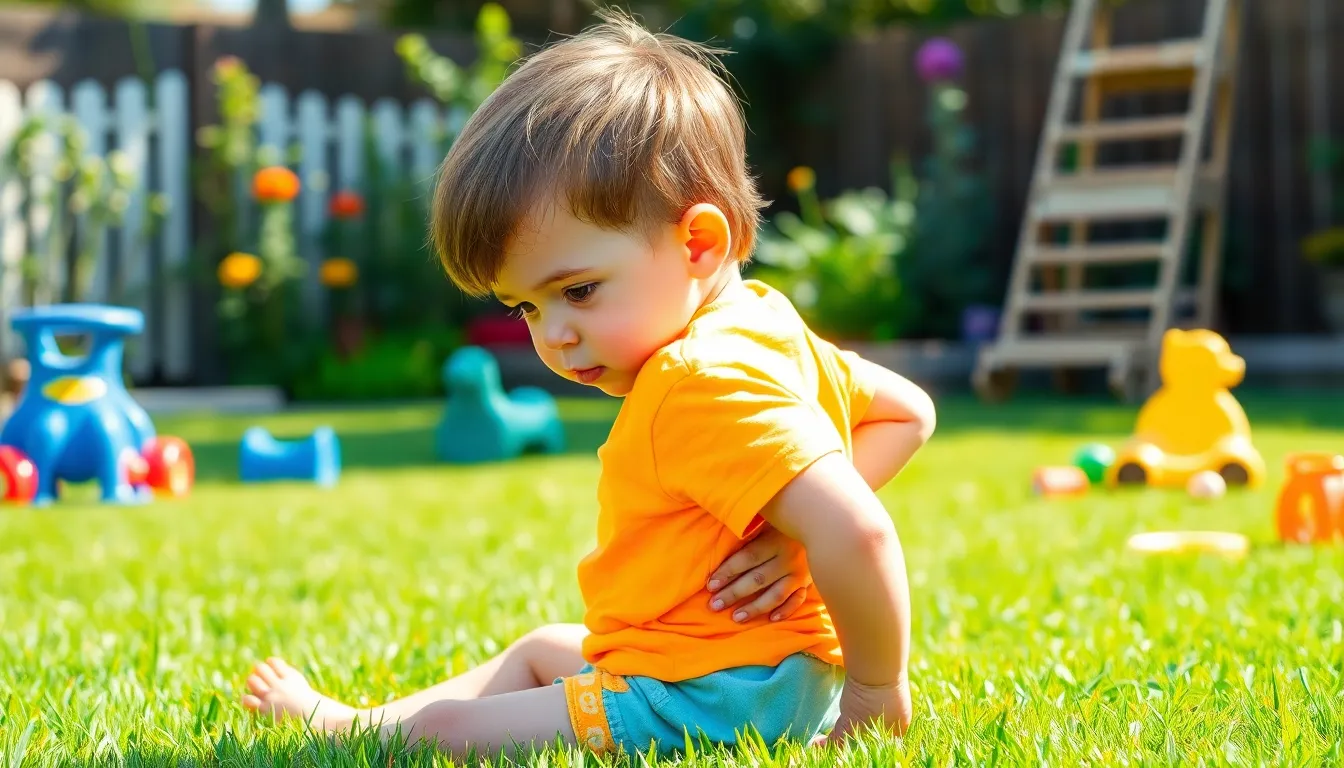Itching around the anus can be an uncomfortable and distressing experience for children, often leading to irritability and disrupted daily activities. Parents may find it challenging to understand the cause, which can range from dietary issues to hygiene habits. Fortunately, there are effective home remedies that can provide relief and promote comfort.
Addressing this sensitive issue requires a gentle approach. Many remedies are easy to implement and can be found right at home. By exploring these options, parents can help soothe their child’s discomfort while also gaining insight into preventive measures. Understanding the underlying causes and utilizing simple treatments can make a significant difference in a child’s well-being.
Table of Contents
ToggleOverview of Itching in Anus in Children
Itching in the anal area in children can arise from various causes, leading to significant discomfort. Common culprits include pinworms, which affects around 10% to 50% of children, and skin irritations due to moisture or diaper rash. Diet may also contribute, with certain foods like citrus fruits and spicy items provoking sensitivity.
Hygiene plays a crucial role; inadequate cleaning after bowel movements can leave irritants that cause itching. Additionally, allergic reactions to soaps, wipes, or laundry detergents may trigger anal itching. Notably, the condition can lead to behaviors such as scratching and restlessness, which further complicate the situation.
Parents should monitor symptoms closely and consult a pediatrician for persistent or severe cases, ensuring proper diagnosis and management of the underlying causes.
Common Causes of Anal Itching

Anal itching in children often arises from various causes, which can range from dietary factors to infections. Identifying these causes can help parents address the issue effectively.
Allergies and Irritants
Allergies to soaps, laundry detergents, or scented wipes can lead to anal itching. Irritants from certain foods, like citrus or spicy items, may also contribute. Maintaining a gentle hygiene routine and choosing hypoallergenic products can help minimize exposure to these triggers.
Infections and Parasites
Infections from bacteria or fungi, along with parasites like pinworms, can cause significant anal itching. Pinworm infections, common in children, occur when eggs are ingested, leading to irritation. Prompt identification of these infections through observation of symptoms allows for effective treatment options, ensuring the child’s comfort and health.
Home Remedies for Itching in Anus
Home remedies can effectively alleviate anal itching in children. Parents can adopt various dietary changes and natural topical treatments to reduce discomfort.
Dietary Changes
Implementing specific dietary changes can significantly impact a child’s anal itching.
- Increase fiber intake: Foods high in fiber, like fruits, vegetables, and whole grains, promote regular bowel movements, preventing constipation that may contribute to irritation.
- Limit sugary foods: Reducing sugar intake can diminish the risk of yeast overgrowth, which can irritate skin.
- Stay hydrated: Ensuring adequate fluid intake helps maintain soft stool, minimizing discomfort during bowel movements.
- Monitor allergens: Identifying and removing trigger foods such as dairy or gluten may reduce itching caused by food allergies.
Natural Topical Treatments
Using natural topical treatments can provide soothing relief for itching.
- Coconut oil: Applying a small amount of coconut oil can moisturize the skin and has antifungal properties, helping reduce irritation.
- Aloe vera gel: Aloe vera is known for its soothing effects. Applying fresh aloe gel can calm inflammation and promote healing.
- Chamomile tea: A cooled chamomile tea compress can ease itching and irritation when applied to the affected area.
- Baking soda bath: Adding baking soda to warm bath water can relieve itching and soothe the skin.
These home remedies may help ease discomfort. Monitoring a child’s symptoms closely remains crucial, as persistent itching may require medical attention.
When to Seek Medical Attention
Seek medical attention if itching persists despite home remedies. Persistent symptoms may indicate an underlying condition requiring professional evaluation.
Monitor symptoms carefully. If the child experiences severe irritation, pain, or discomfort, contact a pediatrician. Visible signs such as redness, swelling, or bleeding around the anus warrant immediate consultation.
Assess dietary changes and hygiene practices. If symptoms do not improve within a few days or worsen, medical guidance can help identify specific causes, such as infections or parasites.
Evaluate additional symptoms. If a child develops fever, unusual discharge, or severe discomfort, these signs may suggest a more serious condition needing prompt medical intervention.
Addressing anal itching in children can be a challenging experience for parents. By understanding the potential causes and implementing effective home remedies, they can significantly improve their child’s comfort. Maintaining proper hygiene and being mindful of dietary choices play crucial roles in prevention and relief.
It’s essential to monitor symptoms closely and recognize when professional medical advice is needed. Through a combination of gentle care and awareness, parents can help their children find relief and ensure their overall well-being. Taking proactive steps can make a world of difference in managing this common issue.


